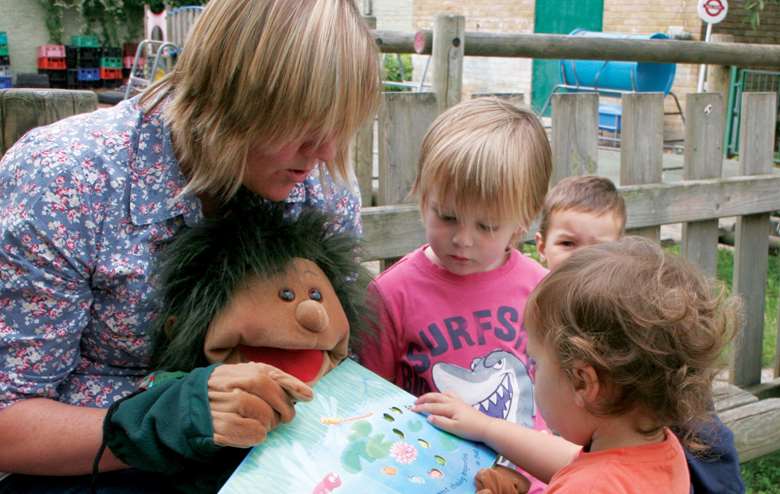Research questions value of free childcare for three-year-olds
Derren Hayes
Wednesday, October 22, 2014
Free nursery entitlement for three-year-olds provides little benefit to their long-term development, according to latest research.

The research, carried out by the University of Surrey, University of Essex and the Institute of Education, looked at the attainment levels of those who took up free places when they were three years old between 2002 and 2007.
It found overall free nursery places only had a small beneficial impact on attainment at the age of five. This declined by the age of seven, and by the age of 11 researchers found no long-term benefit of receiving the early years entitlement.
When the policy was introduced by the previous Labour government, the number attending early years settings increased from 37 per cent to 88 per cent between 1999 and 2007. But the researchers found the bulk of these – five out of every six children eligible for a free place – were already in an early years setting.
The research found the overall increase in outcomes according to the Foundation Stage Profile for children in England at the age of five was just two per cent.
However, there was marked improvement among the minority of children who would not have attended an early years setting if it was not for the free entitlement. Their improvement was 17 per cent.
University of Surrey senior economics lecturer Dr Jo Blanden said poor-quality settings could be to blame for the lack of long-term benefits. Another factor could be that primary schools “do very well at helping children reach their potential, meaning that pre-school experience is not important”, she added.
Another of the researchers, Dr Birgitta Rabe, senior research fellow at the Institute for Economic and Social Research, said the findings suggest free childcare would be more effective if targeted only at the poorest children who might not normally attend nursery.
Neil Leitch, chief executive of the Pre-school Learning Alliance, welcomed the report’s finding that outcomes improved by the age of five among those children who would not have accessed a nursery place without the free entitlement.
He added: “It is important to note that these findings suggest that the introduction of free early education places had a limited impact on outcomes, largely because most children accessing places would have done so anyway. This is not the same as saying that early education itself has a limited impact.”
National Day Nurseries Association chief executive Purnima Tanuku, said recent austerity measures mean the free entitlement is even more important than it was when first introduced as more families are struggling to pay for childcare.
She added: “All children, irrespective of their background and family budget, will benefit socially from mixing, playing and learning together.”




